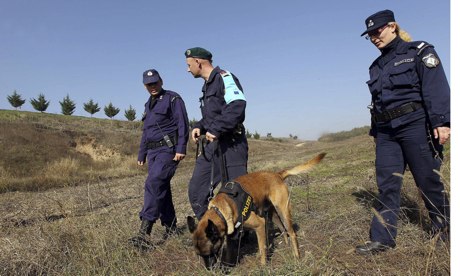ATHENS VOICE - ΕΛΕΝΗ ΜΠΕΖΙΡΙΑΝΟΓΛΟΥ
Ανησυχία για τη μυστηριώδη εξαφάνιση 150 Σύριων μεταναστών στον Έβρο

Ένα ταξίδι από την Αθήνα στην ακριτική
Ορεστιάδα. Η ανταποκρίτρια της βρετανικής
εφημερίδας, «The Guardian» Helena Smith, άφησε την πρωτεύουσα με αφορμή μια
μυστηριώδη και ανεξιχνίαστη μέχρι στιγμής εξαφάνιση.
Συνέβη σ’ ένα μικρό ακριτικό χωριό, το Πραγγί, όπου κατέληξαν μετά από ένα δύσκολο
ταξίδι 150 Σύριοι μετανάστες, ανάμεσά τους εγκυμονούσες, γυναίκες και παιδιά.
Ένα γεγονός που δε μπορεί να περάσει απαρατήρητο. Πόσω μάλλον το γεγονός ότι
μετά την άφιξη της ελληνικής αστυνομίας στην περιοχή, όλοι αυτοί οι μετανάστες
εξαφανίστηκαν. Κάποιοι είχαν μαζευτεί στην αυλή της εκκλησίας, κάποιοι άλλοι
είχαν κουλουριαστεί ανάμεσα στα δέντρα του δάσους. «Έκτοτε, χάσαμε τα ίχνη
τους. Απλά εξαφανίστηκαν. Έχουμε την πεποίθηση ότι “σπρώχτηκαν” από τα σύνορα
πίσω στην Τουρκία», λέει ο Βασίλης Παπαδόπουλος στην Helena Smith, δικηγόρος
που υπερασπίζεται τα δικαιώματα των μεταναστών και των προσφύγων.
Φαίνεται, όμως, πως η Ελλάδα έχει ξεσηκώσει μία γενικότερη ανησυχία στην Ευρωπαϊκή
Ένωση ως προς τις τακτικές που ακολουθεί για να κρατήσει τους μετανάστες
μακριά. Παραβαίνοντας τις διεθνείς-υπογεγραμμένες από την Αθήνα- συμβάσεις, η
Ακτοφυλακή και η Αστυνομία επιδίδονται σε μια συντονισμένη προσπάθεια ν’
ανακάμψουν την πορεία των μεταναστών στην Ευρώπη μέσω της Ελλάδας.


